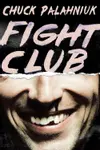

@robbity
Jared
I'm here because I think Goodreads sucks!
Location:skibidi toilet rizz
Jared's Books by Status
1 Book
See allJared's Reading Goals
Jared's Pinned Prompts
Featured Prompt
4,667 booksWhat are your favorite books of all time?
When you think back on every book you've ever read, what are some of your favorites? These can be from any time of your life – books that resonated with you as a kid, ones that shaped your personal...
Featured Prompt
58 booksWhich books had the best film adaptations?
A great movie can lead to even more readers of the source material. What are some books you read that had movies that you enjoyed the most.
Jared's Most Popular Reviews
Contains spoilers
While there are certainly moments here that feel way too edgy for its own good, overall it’s a pretty stellar novella.
I low-key feel like this is just what the first Joker movie thought it was. Rage works better because it’s not an outright endorsement of Charlie Decker as a person.
The last moments are what’s really disturbing here. Over the course of the book, each character slowly starts to side with Charlie. Despite him being an incellian loser, they start to treat him like a hero. It all culminates in everyone violently beating on the popular kid.
Everyone supports Charlie because often people don’t really want change. People support violent causes because they find catharsis in violence.
The final chapter of the book is a letter that a student wrote to Charlie in his mental hospital. Everyone loves Charlie and their lives are all peachy.
Nothing ever happens.
Contains spoilers
I certainly have my issues. For one thing, I think way too much time is dedicated to these killers. I understand that this book was one of the first ever true crime novels, but that doesn’t really excuse it from falling into the common pitfalls of the genre.
That being said, this is truly the best of said genre. In Cold Blood mainly works for me because of part one. An entire third of this book is dedicated to the lives of The Cutters. Parts 2-4 would not work at all without that first part, and while the book does get worse after that, I think it’s overall paced incredibly well.
True Crime as a genre is one of my darkest vices when it comes to art. I know how exploitative it is, I know that it humanizes people who frankly don’t deserve humanization, and I know that it melodramatizes real tragedies. But sometimes, it can be great and respectful.
I heavily doubt anything in the True Crime genre will ever top this. Capote’s dialogue is so expertly written and endlessly layered. The omniscience adds a genuinely chilling atmosphere to the entirety of the aftermath.
I’m overstating my issues with the book because it really is an incredible work of genre-bending nonfiction. Almost perfectly paced and deeply empathetic, even if sometimes to its own detriment.
True Crime will probably never reach these heights again.
Contains spoilers
I finally switched my major back to English Education, so now I need to read some books that I could potentially teach in class in the future. And I definitely think that this is a good novel to teach.
I think a large reason this book works is because of how much time we spend we spend at Hailsham. Honestly, I think the first two parts of the book are a lot stronger than the last part. Growing up, I was always more interesting in the slice of life introductions of novels than the rest of the story, so I really appreciated how much of this was just stories about Kathy's life.
I cried at the end of this book. It really is beautiful. Idk it's hard to write about novels because I spend so much time with them and I don't know what to say.














